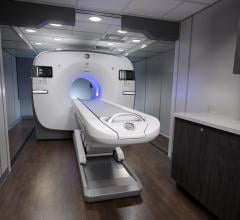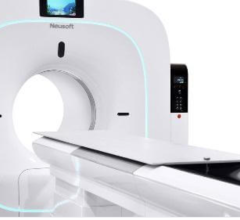
October 3, 2013 — The Alzheimer's Association is disappointed by the Centers for Medicare & Medicaid Services (CMS) decision to allow only Coverage with Evidence Development (CED) for an Alzheimer's imaging test that would improve diagnostic accuracy and certainty in challenging cases. When used in specific populations, as outlined in criteria developed by the Alzheimer's Association and the Society for Nuclear Medicine and Molecular Imaging (SNMMI), this tool has the potential to help identify amyloid in the brain, a hallmark of Alzheimer's disease, and resolve distressing medical uncertainty.
According to Alzheimer's Association 2013 Alzheimer's Disease Facts & Figures, more than 5 million Americans are currently living with Alzheimer's — approximately half being undiagnosed — with those numbers projected to reach as many as 16 million by 2050. Lack of a diagnosis makes management of a progressive and fatal disease like Alzheimer's even more difficult. Early diagnosis has been found to lead to better outcomes and higher quality of life for people living with the disease and their families by enabling earlier access to appropriate treatments, allowing the family to build a care team and seek out education and support services, enabling enrollment in Alzheimer's/dementia clinical trials and providing an opportunity for the development of advance directives and financial planning. Additionally, the ability to rule out a diagnosis of Alzheimer's could lead to a more treatable diagnosis and decrease inappropriate use of medications that could potentially be harmful.
"It took more than three years, multiple doctors and countless tests for me to obtain a diagnosis of younger onset Alzheimer's. The prolonged uncertainty created anxiety and exacerbated an already difficult time," said Lou Bordisso, former early stage advisor, Alzheimer's Association. "Technology that could be used to clarify and expedite an often lengthy diagnosis can provide much needed relief to individuals and their families who simply want to start planning for the future."
A report of the taskforce convened by the Alzheimer's Association and SNMMI that describes appropriate use of brain amyloid imaging was published online as an article in press on Jan. 28, 2013, by Alzheimer's & Dementia: The Journal of the Alzheimer's Association and Journal of Nuclear Medicine. According to those criteria, appropriate candidates for amyloid positron emission tomography (PET) imaging are limited to:
- Individuals who complain of persistent or progressive unexplained memory problems or confusion and who demonstrate impairments using standard tests of cognition and memory. Additional clarification of these individuals was made by the Amyloid Imaging Taskforce (AIT) in July 2013. Amyloid PET would be appropriate only in those mild cognitive impairment (MCI) individuals who the dementia expert has concluded would benefit from greater certainty of the underlying pathology and whose clinical management would change as a result of this greater certainty. (Alzheimer's & Dementia, The Journal of the Alzheimer's Disease, July 2013).
- Individuals meeting tests for possible Alzheimer's but who are unusual in their clinical presentation.
- Individuals with progressive dementia and atypically early age of onset (before age 65).
The Alzheimer's Association appreciates that the evaluation of the impact of brain amyloid imaging on health outcomes can be complex in the absence of a treatment to stop or even slow the progression of the disease. However, as the scientific community races toward the National Alzheimer's Plan goal of prevention and effective treatment by 2025, many people facing confusion and frustration would benefit from the accurate and accelerated diagnosis this tool could offer. The Alzheimer's Association remains steadfast in its commitment to advocating for the best available resources for the millions of families impacted by Alzheimer's and will continue working with CMS to ensure the most expedient and effective Coverage with Evidence Development and, ultimately, coverage of this diagnostic tool.
Eli Lilly and Company, the maker of the beta-amyloid imaging agents Amyvid, also expressed disappointed that CMS has denied patient access to the agents. This final decision is not only contrary to expert opinion and published Appropriate Use Criteria previously recommended by the Alzheimer's Association and SNMMI but contradicts the statutory authority CMS has over coverage determinations for diagnostics, the company contends.
Denying appropriate patient access is also in conflict with the administration's National Alzheimer's Project Act, the company said in a statement. CMS participated in creating this plan aimed at developing new and innovative ways to diagnose, support and treat patients suffering from Alzheimer's Disease. Yet the same agency is challenging the value of the only technology approved by the FDA for estimating beta-amyloid neuritic plaque density in the living brain. Lilly said this could aid in helping doctors make a more informed diagnosis.
"Coverage with Evidence Development as proposed by CMS does not provide patients appropriate access to these amyloid imaging brain scans. Instead, it creates additional complexity for the broader community in determining the best path forward for patients," said Eric Dozier, senior director, Alzheimer's business division, Eli Lilly and Company. "As we continue to review the final decision memo, we will be evaluating all available options to ensure patients and physicians can gain access to this innovative diagnostic tool as soon as possible."
For more information: www.alz.org


 July 30, 2024
July 30, 2024 








